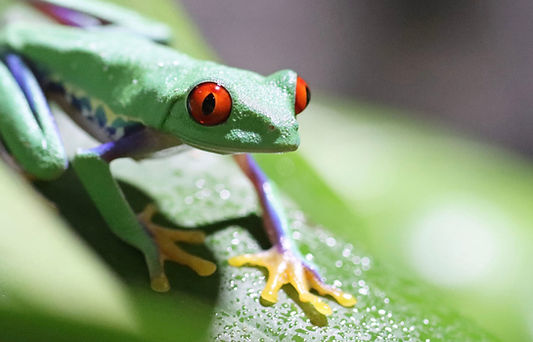role of the zookeeper.
In this interactive workshop, pupils will get to visit the walk-through enclosures and learn about the 'Five Freedoms' involved in animal care and welfare. They will learn about what a keeper does on a daily basis and have the opportunity to meet a keeper.
National Curriculum Links
-
Listen attentively and respond to what they hear with relevant questions, comments and actions when being read to and during whole class discussions and small group interactions. Show sensitivity to their own and to others’ needs.
Learning Objective
-
I am able to describe what animals need in order to be cared for
Learning Outcome
-
Children will be able to give examples of ways that we care for animals e.g providing food/water/shelter. Pupils will be able to ask a question about being a zookeeper/animal care.
Pre-visit Suggestions
-
Discuss key vocabulary with pupils e.g diet, tools, skills.
-
Access the Zoo app to look at the map of the zoo, watch live animal webcams and access more information on the animals.
where do I live?
We will focus on comparing animals from hot and cold climate, looking at what colour the animals are, whether they have fur, feathers, scales etc and how they move. We will match animals to their habitats and have the opportunity to listen to keepers talk about what makes each animal unique.
National Curriculum Links
-
Understand some important processes and changes in the natural world around them, including the seasons and changing states of matter.
Learning Objective
-
I know that animals live in different types of homes and that some animals are from hot or cold climates.
Learning Outcome
-
Children will be able to name some of the key habitats and match which animals live in them
Pre-visit Suggestions
-
Introduce the term 'habitat' and explain what it means, look at some of the micro-habitats on the school grounds e.g. under a log, in a pond and identify what lives there.
growth and development.
This workshop involves matching adult and baby animals, as well as introducing children to the idea of 'life cycles' by presenting them with minibeasts at various phases of their life; eg. egg, nymph, sub-adult, adult.
National Curriculum Links
-
Understanding the world involves guiding children to make sense of their physical world and their community through opportunities to explore, observe and find out about people, places, technology and the environment.
Learning Objective
-
I know that changes take place over time when developing from a baby or egg into an adult.
Learning Outcome
-
Children will be able to name some of the adult and baby animals that they encounter in the zoo; Children can produce a life cycle for some animals in the zoo.
Pre-visit Suggestions
-
Invite children to look at baby photos of their classmates or teachers, look at the changes that have taken place. Introduce terms such as 'hatching', 'offspring', etc





